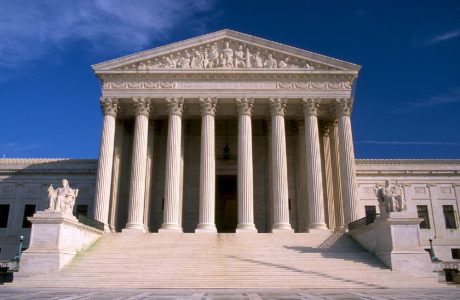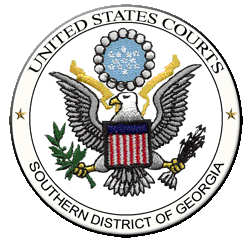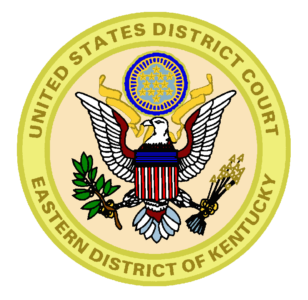
This afternoon, the United States Supreme Court released two opinions dealing with the Biden Administration’s COVID-19 vaccine mandates. In the first, the Court dealt a death blow to the OSHA mandate, which required vaccines and/or testing for all employers with 100 or more employees. In the second, the Court found that the vaccine mandate for health care facilities was a valid exercise of power.
OSHA Mandate: National Federation of Independent Businesses v. Department of Labor
You can read the Supreme Court’s OSHA opinion here: OSHA Opinion. You may recall that the Sixth Circuit Court of Appeals issued an opinion in December upholding OSHA’s vaccine-or-test requirements. Here’s the blog post that I wrote on that decision: Sixth Circuit Upholds Mandate. Numerous States, businesses and nonprofit organizations asked the Supreme Court for emergency relief “staying,” or halting, the OSHA rule. The Court granted that relief and the OSHA mandate is now on hold.
In short, the Court found that the United States Secretary of Labor lacked authority to impose the OSHA mandate. The mandate “operates as a blunt instrument” that “draws no distinctions based on industry or risk of exposure to COVID-19.” Moreover, the Court called the rule a “broad public health measure” which went beyond OSHA’s authority to “set workplace safety standards.”
Although COVID– 19 is a risk that occurs in many workplaces, it is not an occupational hazard in most. COVID–19 can and does spread at home, in schools, during sporting events, and everywhere else that people gather. That kind of universal risk is no different from the day-to-day dangers that all face from crime, air pollution, or any number of communicable diseases. Permitting OSHA to regulate the hazards of daily life—simply because most Americans have jobs and face those same risks while on the clock—would significantly expand OSHA’s regulatory authority without clear congressional authorization.
And, in concluding its opinion, the Court issued this declaration: “Although Congress has indisputably given OSHA the power to regulate occupational dangers, it has not given that agency the power to regulate public health more broadly. Requiring the vaccination of 84 million Americans, selected simply because they work for employers with more than 100 employees, certainly falls in the latter category.”
Before this opinion was issued, some commentators thought that the Supreme Court might strike down the mandate because it exceeded the Secretary of Labor’s power to issue an emergency rule. But, this opinion largely ignores the emergency nature of the rule and broadly says that the Secretary of Labor does not have Congressional authority to issue this type of broad health program.
The opinion leaves open the possibility that OSHA might be able to impose mandates in specific types of workplaces — if there is an “occupation-specific risk related to COVID-19.”
We do not doubt, for example, that OSHA could regulate researchers who work with the COVID–19 virus. So too could OSHA regulate risks associated with working in particularly crowded or cramped environments. But the danger present in such workplaces differs in both degree and kind from the everyday risk of contracting COVID–19 that all face.
So, we might see OSHA attempt more-narrow vaccine mandates in the future. But, for now, the broad-based requirement for employers with 100 or more employees seems finished.
CMS Mandate: Biden v. Missouri
The CMS vaccine mandate was developed by the United States Secretary of Health and Human Services. It applies to most medical facilities that receive Medicare or Medicaid funding. For example, if a hospital wants to be paid for treating Medicare or Medicaid patients, it must ensure that its employees and medical staff are vaccinated, or have a valid religious or medical exemption.
In contrast to its OSHA opinion, the Supreme Court held that the Secretary of Health and Human Services acted within his authority when he implemented the CMS mandate. The ultimate conclusion was that “there can be no doubt that addressing infections problems in Medicare and Medicaid facilities is what [the Secretary] does.” Thus, the Court drew a stark contrast between the OSHA and CMS:
The challenges posed by a global pandemic do not allow a federal agency to exercise power that Congress has not conferred upon it. At the same time, such unprecedented circumstances provide no grounds for limiting the exercise of authorities the agency has long been recognized to have.
The opinion can be found here: Supreme Court CMS Opinion
What About Federal Contractors?
Many of my clients are government contractors and are anxiously awaiting the fate of the Biden Administration’s mandate for federal contractors. Right now, the federal contractor requirement is stayed nationwide. Here’s the blog post I wrote about the stay: Federal Contractor Mandate Halted.
The federal contractor requirement has not yet made it to the Supreme Court. Do today’s opinions give us any clue how the Supreme Court might rule when it reviews the federal contractor mandate? Maybe.
If I was forced to bet, I would guess that today’s opinions don’t bode well for the federal contractor mandate. Essentially, the Supreme Court said: “OSHA is not in the public health business, but CMS is. So, we’ll let CMS regulate public health in medical facilities, but we won’t let OSHA regulate public health in the workplace.” The federal contractor mandate is the result of President Biden’s Executive Order 14042. So, is the President in the public health business when he (or an executive agency) enters into contracts?
My gut says: “No.” For that reason, I think the federal contractor mandate might get overturned. Nevertheless, there are parts of the CMS opinion that support President Biden’s authority. For example, the Court noted that “healthcare facilities have always been obligated to satisfy a host of conditions that address the safety and effectiveness of healthcare, no simply sound accounting.” Also, the Secretary of Health and Human Services “routinely imposes condition of participation that relate to the qualifications and duties of healthcare workers themselves.”
Those findings can also apply to federal contractors. For example, “[federal contractors] have always been obligated to satisfy a host of conditions that address the safety and effectiveness of [government services].” Also, federal agencies “routinely impose conditions of participation that relate to the qualifications and duties of [government contractor employees].”
Conclusion
As always, stay tuned. When new developments occur, I will discuss them as soon as possible.





